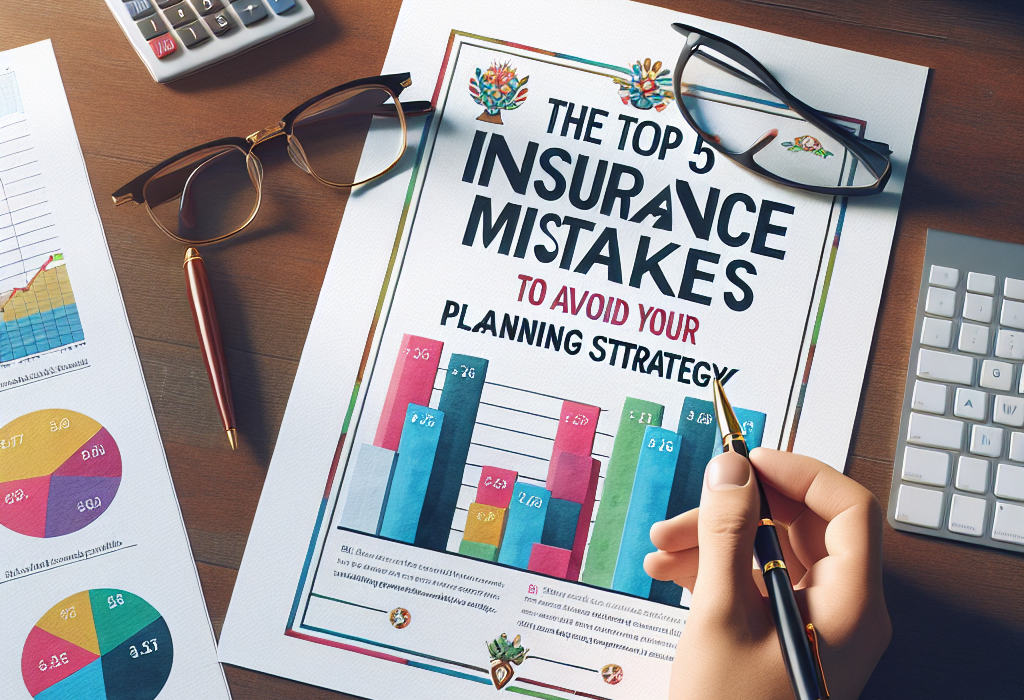Insurance is a financial security net that allows individuals and businesses to recover smoothly from life’s unpredictable circumstances. However, in the race to secure the future, people often fall prey to critical insurance mistakes. This comprehensive guide aims to shed light on the top five insurance mistakes that people should avoid in their planning strategy.
Mistake 1: Underinsuring Your Assets
Often time, individuals undervalue their assets leading to underinsurance. This means the insured amount is less than the value of the insured property. In the event of a misfortune, such as a house fire, the coverage may not be sufficient enough to cover the losses. This gap can lead to significant financial strain.
Mistake 2: Neglecting Disability Insurance
Many individuals overlook the importance of disability insurance, assuming they would never require it. However, according to the Council for Disability Awareness, just over 1 in 4 of today’s 20-year-olds will become disabled before reaching age 67. Disability insurance can be a lifeline if an unexpected event prevents one from working, providing a steady source of income during a challenging period.
Mistake 3: Not Reading Policies Carefully
Individuals often neglect reading their insurance policies thoroughly. They rely on a brief overview or verbal descriptions given by agents, leading to misconceptions about coverage. Understanding the exclusions, limitations, and the claim process is essential to avoid future disappointments.
Mistake 4: Not Reviewing Insurance Needs Regularly
As life progresses, insurance needs can drastically change due to life events like getting married, having children, purchasing a home, starting a business, or retiring. Always revisit and update your insurance policies according to the evolving scenarios.
Mistake 5: Choosing Cost over Coverage
Purchasing insurance with the lowest premium may seem to save money in the short term, but may not provide adequate protection when needed. In such cases, instead of minimizing risk, low-cost insurance may result in unanticipated expenses due to lack of proper coverage.
Conclusion
While insurance is an integral part of financial planning, its complexity often leads to unintentional mistakes. By understanding and avoiding these common insurance planning mistakes – underinsuring, neglecting disability insurance, not reading policies, not reviewing insurance needs, and valuing cost over coverage – one can enhance financial protection and peace of mind. Remember, insurance is not an expense. It’s an investment that secures the financial future of your loved ones and you.
Frequently Asked Questions (FAQs)
1. What is underinsurance, and why is it a problem?
Underinsurance is when the value of a insured item is less than its true value. This gap can lead to significant financial losses in case of an unfortunate event, as the insurance payout might not cover the entire cost for recovery.
2. Why is it important to read insurance policies carefully?
Understanding the exclusions, limitations, and the claim process is essential for avoiding future disappointments and dispute while claiming the insurance
3. How often should I review my insurance needs?
It’s recommended to review insurance needs regularly, at least once a year, or whenever there is a major life event like a marriage, birth of a child, purchase of a new house, changing jobs, and so on.
4. Why is it a mistake to choose cost over coverage?
While a low-cost policy may seem attractive, it may not provide adequate coverage, leading to high out-of-pocket costs in an unfortunate event.
5. Why is disability insurance crucial?
Disability insurance can provide a steady source of income if an accident or illness prevent you from working. Given the unpredictability of life, it’s a crucial safety net.













